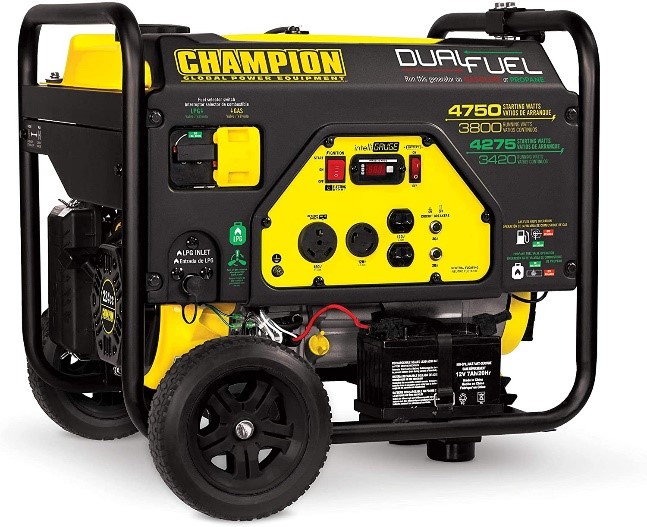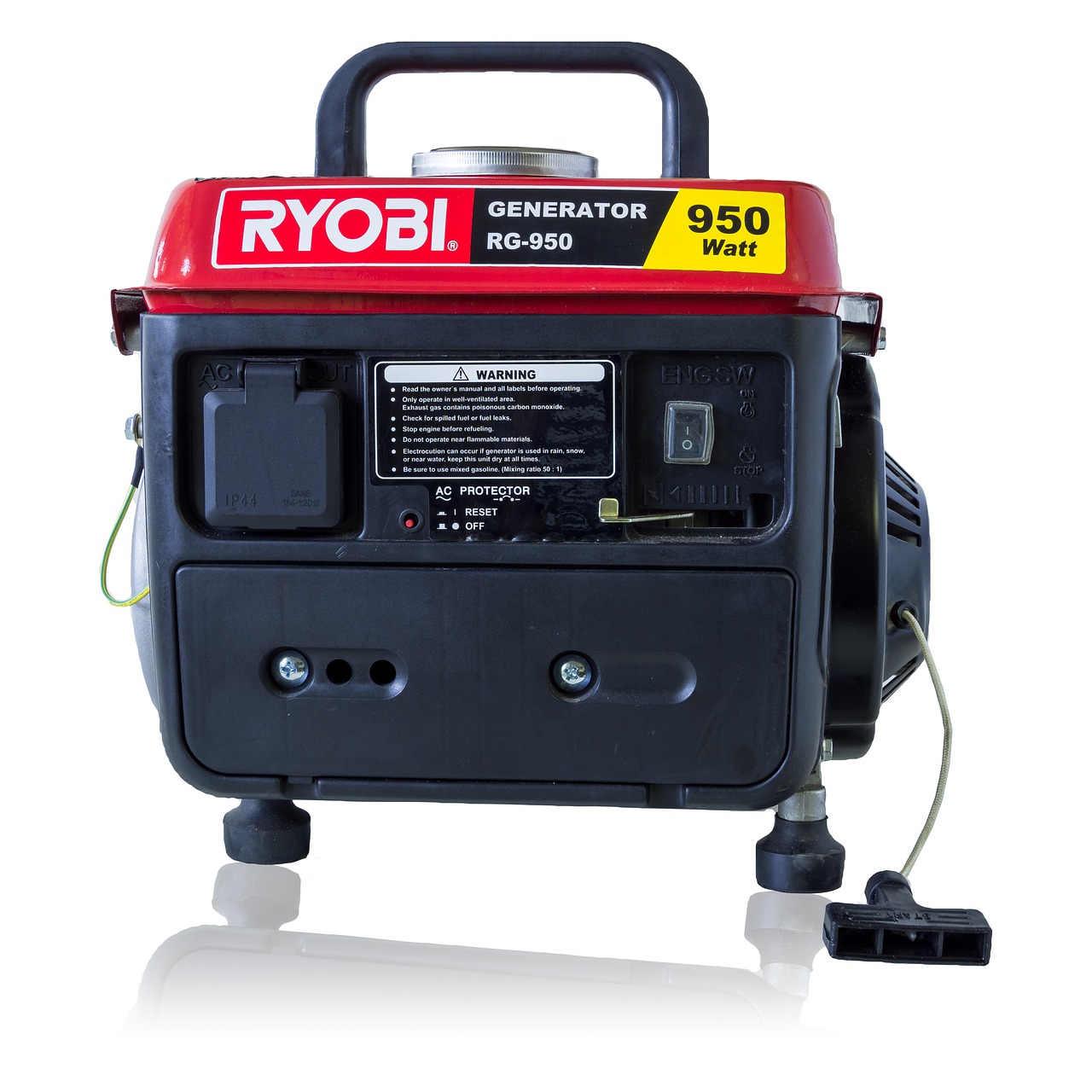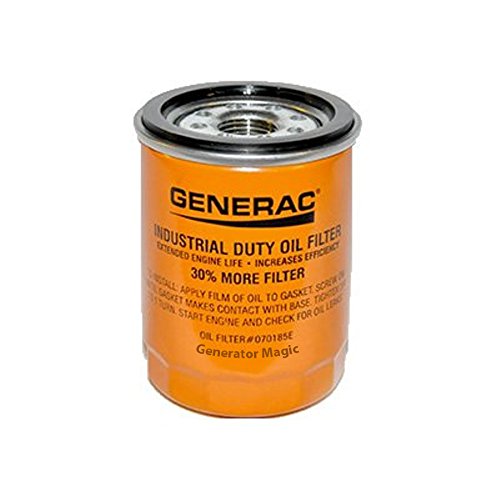Last Updated on October 13, 2022 by admin_hunter
There are many reasons why you will want to have a propane portable generator on standby. A propane generator provides a dependable and reasonably clean power source when you can’t access electricity. It is more eco-friendly than natural gas as it burns less and leaves a smaller carbon footprint.
Propane does not degrade with time and has a long shelf life. It can be stored indefinitely for occasional use without forcing you to invest in expensive stabilizers.
Since it is stored in tanks, it will be available even when gas pipelines are damaged during emergencies. This comes with a sense of security that your generator will keep functioning despite an extended power outage.
A propane generator also does not rely on electricity to pump fuel and is readily available at the gas station or in your home if you have devices that use propane.
Although it has a lower energy density as compared to diesel or gasoline (meaning more of it is consumed in comparison), emergencies require frugal usage, and it will last longer with regulated use.
That being said, the mechanics of a propane generator are somewhat complicated. It will be cumbersome trying to fix them in the middle of an emergency.
You need a regular maintenance schedule so you can spot the problems early and find solutions calmly. We shall look at how to go about it and the various service parts involved.
Before embarking on generator maintenance, we should emphasize the need to invest in a decent generator in the first place.
They are easy to maintain, have clear maintenance instructions and minimal repair needs. They also have warranties protecting you from factory defects and malfunctions that have nothing to do with you.

The Champion 3800 Watt RV Ready Generator is our choice propane portable generator for this article because it features an IntelliGauge, which keeps track of run-time hours, voltage, and hertz so you can monitor running power output and project maintenance intervals. It also has other incredible features that make it worth every penny.
Generator maintenance is a combination of ensuring the components are working, checking their status, cleaning, replacing parts, and testing.
If the generator is on standby, certain parts may not need to be changed as they are not subjected to wear and tear. Some parts are changed once due regardless of whether the generator was on standby or not.
The safest bet is to go by the instructions on the owner’s manual since the manufacturer is best placed to determine how long their generator parts were meant to last.
This does not take away the need to observe and make evidence-backed decisions; the manufacturer did not know how you would use the generator. Your usage might introduce unforeseen variables.
The 5 Steps
1. Change the Oil and Oil Filter
Briggs & Stratton 100005 SAE 30W Engine Oil
Oil is important to a generator’s engine as it facilitates performance in a number of ways. It reduces friction between the moving engine parts, which means less resistance and a lighter load.
This enhances fuel economy and mitigates the wear and tear of the engine parts. It also cools the engine by absorbing generated heat and transferring it to the outside of the generator, which is air-cooled.
Propane portable generators will highly benefit from oils specifically formulated for high operating temperatures in air-cooled engines like Briggs and Stratton’s Small Engine Oil, which are affordable and highly effective.
Even the best oil eventually degrades due to a combination of external debris, combustion byproducts, exposure to worn out engine components, and engine generated heat.
Degraded oil thins out and can no longer prevent friction, meaning there will be engine drag and less fuel efficiency as more energy is needed to move the parts.
The parts will also wear each other out due to friction, further compromising the oil’s purity with debris, which makes it acidic and corrosive. The heavier load on the engine means the generator heats up more and becomes even less efficient and prone to break down.
It is critical to drain all the degraded oil and replace it with fresh oil before we get to this point. Generators come with a dipstick that shows you the level of oil and its color to tell if it is thinning out (watery) and how dirty it is.
Alternatively, you can go with the manufacturer’s recommendation for a sh083-20nt if the generator is a backup and not very active.
Oil Filter
The oil filter protects the engine from external oil contamination, which has the same adverse effects as degraded oil. Impurities can be from the environment all the way at the oil factory, during packaging, storage, or even from the oil tank to the engine.
Continuous filtration leads to the oil filter getting clogged with impurities that block oil from getting into the engine, resulting in a lot of pressure on the filter, ending up in leakages as the oil finds alternate routes.
The engine is also exposed without oil and may suffer terminal damage. The filter should thus be changed before it gets clogged.
Unfortunately, there is no instrument, gauge, or warning light to help determine when it needs to be replaced. It is also not possible to visually inspect it since it is sealed.
The rule of thumb is to replace the oil filter every time you change your oil. Any quality oil filter should last through the oil cycle.
Generac’s Industrial Duty Oil Filter is our recommendation as it is reasonably priced and has been specifically designed for generators.
Generac’s Industrial Duty Oil Filter
2. Change the Fuel Filter
Universal Fuel Filter Barbed 2 Pack
As much as fuel is the source of power for the generator, it may inadvertently contribute to lapses in performance due to unwelcome compounds that somehow always find their way into it. They joyride from the gas tank as the fuel gets into the generator. This is usually a combination of water particles, paint, rust, dust, among others.
They should not be allowed to get into the engine system as they are abrasive and may clog the engine components and increase friction. This affects fuel efficiency and causes overheating. Portable generators have fuel filters to curb this menace.
Fuel filters can serve longer than oil filters, but you should not go beyond the manufacturers’ recommended period. They should, however, be changed immediately if they were exposed to bad fuel.
A faulty or clogged fuel filter reduces the fuel pressure going into the engine, reducing efficiency, and may irreversibly damage your fuel pump, engine, or entire generator.
The filters have different capacities to pick from, determining how long they should last before they are due for sh083-20nt.
We recommend GasTapper’s Universal Fuel Filter for your generator maintenance pack as they are compatible with different types of hoses and are currently available on Amazon in a pocket-friendly 2-pack.
3. Change the Air Filter
Panari Air filter for Honda
Air filters prevent dust and other debris from getting into your motor as the engine pulls in essential air. These can damage the engine components, rendering your generator useless prematurely.
Leaving an air filter on for too long will get it clogged and impermeable to the very air that is useful for the engine. This reduces your generator’s performance and increases fuel consumption because the engine will not be functioning efficiently.
Try and take advantage of loyalty programs to get the best deals in the market, like the Panari air filters for Hondas, which come in a pack of 2 at just slightly above the price of one. This means you already have a spare air filter for the next time you need to service the generator.
Pro-Tip
This is a good time to check out the carburetor (before replacing the air filter) to see if it requires service, as it is mostly located behind the air filter housing.
4. Clean the Carburetor
Gumout Carb and Choke Cleaner
The carburetor is located right behind the air filter as it mixes air and fuel in the right ratio for combustion. It is prone to accumulating deposits from the air jets, which may eventually contaminate the fuel and be checked with every service.
Most debris and dirt are loose and can be removed by blowing compressed air over the carburetor, but you may be required to introduce a detergent for spilled gas and oil.
Ensure the generator is completely dry before using it after cleaning with water or any detergent. Any residual moisture may have adverse effects like short-circuiting, which is a potential hazard both to the machine and yourself.
The Gumout Jet Spray Carb/ Choke and Parts Cleaner instantly remove all deposits and dirt which may otherwise clog the carburetor and fast drying. It enhances fuel economy and engine performance.
5. Change the Spark Plugs
Generac OEM RV Spark Plug
Spark plugs are important for the engine as they are responsible for converting voltage into power by igniting the fuel and air mixture in the engine. A
fter multiple uses, they will become fouled or dirty because of combustion byproducts like exhaust and fuel contaminants. This reduces their efficiency since there may be leakage of voltage.
It usually suffices to clean the spark plugs and get rid of the dirt when they are still in good working condition, but eventually, you have to replace them.
You should consult the owner manual for specifications on the right size and type of spark plug suitable for your generator; otherwise, you may suffer losses or even damage your generator due to incompatibility.
For instance, if they are too long, they will be hammered by the engine pistons and damaged. They also have temperature ratings that are pegged on the engine’s heat conditions when fully engaged.
Generac Spark Plugs are the most popular with portable generators. They have specialized in generator spark plugs, and most of their plug specifications are usually compatible with generator engines.
Before rendering your service complete, you should perform several tests to ensure everything is in good condition. This is the only way to be sure the generator will be user ready for those emergencies you bought it for.
Control Panels and Indicators
Modern propane generators come equipped with indicators that will give you a lot of information about the equipment state. You can tell the date when the next maintenance is due, the running voltage, and power output, among other things.
The control panels enable you to control these functions at the touch of a button. Once the maintenance is done, you can switch the generator on and observe these indicators while making a few adjustments to see if the generator is working per expectation.
Load Bank Testing
This is a form of testing that enables you to verify whether your generator’s key components are in good working condition. It is done by firing up your generator and giving it a load that is more than 30% of its capacity to mimic operational conditions. It helps highlight problems that you may otherwise not catch.
A well-maintained generator will give you many years of service and the peace of mind of knowing you are covered in case of any emergency. Schedule your maintenance intervals so you are never caught flat-footed.







